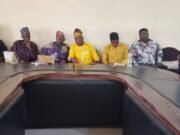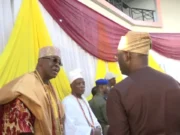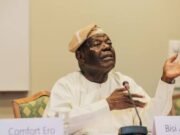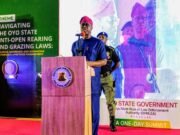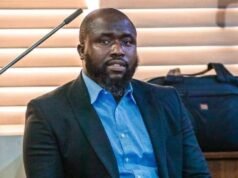In their quest to see an African continent that competes favorably well in celebrating its literary talents, stakeholders, within the literary community, have identified the urgent need for African countries to do better in recognizing its literary talents.
This formed part of the many interventions at the most recent edition of the Toyin Falola Interview Series held on Sunday, August 7, 2022 across many online platforms and viewed by millions spread across Nigeria, Africa and the larger globe. The Toyin Falola Interview Series, chaired by one of Africa’s brightest historian, Professor Toyin Falola, based in the United States of America, has been at the forefront of amplifying African voices.
The interview sessions have featured very key players in the African continuum.
Speakers during this edition were drawn from various regions of the African continent. With the theme, ‘Rethinking African Literature, the speakers included: Ashraf Aboul-Yazid, an Egyptian poet, novelist, cultural journalist, president of the Asia Journalist Association, and Editor-in-Chief, The Silk Road Literature Series; Monica Cheru, Vice-President of Pan-African Writers’ Association (South African region), chair of the Zimbabwe Writers’ Association, and author of short stories and anthologies; Dr. Cherno Omar Barry, Vice-Chancellor of the International Open University, and President of the Writers Association of The Gambia; Mwamwingila Goima Peter, who is an author/writer of children and adult literature using Kiswahili; and Dr. Wale Okediran, medical doctor, former member of the Nigerian Parliament, author of several novels, and Secretary-General of the Pan-African Writers Association (PAWA).
While interrogating the panel of writers and literary critics, Professor Falola raised the issue of literary awards and how prize-obsession by African writers. Asking, Falola stated: “Suppose you and other members of the panel do not win any major literature prize, what does that mean to you and how does this affect young writers? Should writers be prize-obsessed?”
In his response, Dr. Omar Barry stated that Africa has got great writers and it is incumbent on the continent to deliberately celebrate her literary talents. “The issue of an award should also be seen from a different angle: motivation, encouragement, not just from the monetary perspective. Awards encourage young writers and give them the hope that writing also has a way of being recognised. Recognition is very important but unfortunately we have a way of poorly recognising our own. We have got great writers; some of them are probably under the shadows. If you give awards, you tend to bring them into the spotlight. By this, people tend to know them and encouraged to read their books. We all agree that the reading culture is dying all over Africa and the world,” he said.
While taking a slight bent, Monica Cheru argued that while she agreed that Africa celebrates her talents, there was the need for caution especially considering the framing of these awards in order to suit certain ideologies. According to her, “I am actually an advocate against awards and prizes. It is a matter of principle for me and nothing personal. Some of these awards have certain frames in which you must write in order to qualify for these awards. Unfortunately at the international level of these awards, they tend to favour the negative stories of Africa. I know that as writers we want to make money but at the end of the day at what percentage of African writers get these prizes? I don’t think we should write for that. I don’t think we should encourage the young people for coming into writing to aim for the prizes. It is also my belief that if a writer meets the needs of the audience, they should be able to be successful as a writer.”
Worried about the need to have more African children to be interested in African literature, Professor Falola had inquired from children literature author, Peter, if there was anything that could be done to shore up this interest in children. Accordin to Falola, “how do we engage children to make them interested in African literature, considering all the various issues on the internet, the smart phone and the virtual world?” Reacting Peter told the audience that “The world has come together through technology. Many things have been happening; many things have been challenging our society, especially African societies. Since the introduction of information technology, you may find out that most adults have taken it as a tool for work. When he or she is busy, the smart phone is used for texting and calling. When he or she returns home, the kids take that smart phone and explore a lot of things from different worlds; these are things that the parents may not understand. Our African children have been away from receiving our literary works. We have several things to do. We must agree that the literary works have moved from the physical books to technological platforms. As adults, we must make sure that we help our children to understand that when they use technology to explore the world, what should be explored? They should not be allowed to explore everything. When I get home, the first thing my kid asks for is the smart phone. But after five minutes, that kid would be playing a game. The parent must set permits on the phone gadget he or she cannot download games. I am not saying games are bad but what games are they playing.
“Sometimes, they watch cartoons from other cultures. Those cartoons are literary works. But what messages do they pass across to our kids. We must show our kids the literary works of Africa. When they grow up, no matter how pressured they become, they will stand by African literature.”
Sharing his thoughts on disruptive African literature, Omar Barry submitted that: “In both academic and non-academic contexts today, there is high level of interest in African literature. Some critics fear that many African best known authors are promoting a superficial, overly Diasporic or even western focussed pictures of the African continent, rather than stories with solid roots in local African realities. Such debates however about African writings are likely to continue for a long time. Story-telling is a powerful tool for bringing about change because of its ability to move and transcend pain, victimisation, to empowerment and extinguish darkness. When we say disruptive narrative, we mean ‘narrative’ as a term that we use in system change, advocacy and discussing concepts that shape people’s actions. One story is not enough to explain the current state of affair; it has to be supplemented by various stories and images that either support or drive a movement to change. The general public is growing to the awareness of the powers of these stories.
“African literature is being defined by many writers today. Young writers, women writers are emerging: like Chimamanda Adichie, Teju Cole and many others. Disruptive narratives are present in emerging works of African writers that will create their canon with time.”
In the audience were prominent members of both the literary and secular communities.



